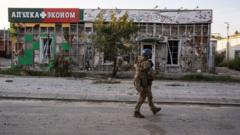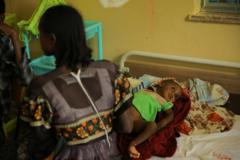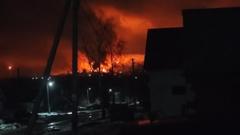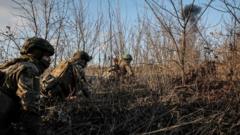The Trump administration's 90-day halt on foreign aid has sent shockwaves through Ukrainian humanitarian organizations reliant on U.S. support, prompting some to suspend vital programs amid an ongoing crisis.
Humanitarian Aid in Ukraine Faces Unprecedented Halt Amid Trump Administration Actions

Humanitarian Aid in Ukraine Faces Unprecedented Halt Amid Trump Administration Actions
Organizations scramble to adjust as U.S. foreign aid audit leads to service suspensions affecting veterans and displaced individuals.
As the conflict in Ukraine drags on, the ramifications of a recent decision by the Trump administration are hitting humanitarian groups hard. A week after the abrupt cessation of U.S. foreign development aid—announced in the wake of a 90-day audit—various organizations in Ukraine reported immediate impacts. Many have been forced to cease operations, leaving vulnerable populations, particularly war veterans and internally displaced individuals, without critical services.
The United States has been a cornerstone provider of aid to Ukraine, contributing over $37 billion since the conflict began nearly three years ago through its Agency for International Development (U.S.A.I.D). However, the recent measures have left these organizations in a state of uncertainty.
Yuriy Boyechko, founder of the humanitarian group Hope for Ukraine, expressed grave concerns about the sudden halting of support specifically for frontline residents during winter. He highlighted that firewood deliveries would cease immediately, jeopardizing the warmth and sustenance for many in the war-ravaged areas of Kherson and Kharkiv. "They’re going to feel the effect of this next week," he stated, emphasizing the dire situation facing those reliant on these supplies.
Additionally, Ivona Kostyna, chairwoman of the Veteran Hub—a key organization for the welfare of veterans—revealed that they have had to stop two significant programs due to the funding freeze. One program focused on creating employment policies for veterans while the other provided physical space for veterans to gather and access services. This disruption underscores the critical need for consistent support in one of Eastern Europe’s most troubled regions.
The long-term implications of this aid suspension remain to be seen, as countless individuals and families await urgent assistance during a historically challenging winter.






















